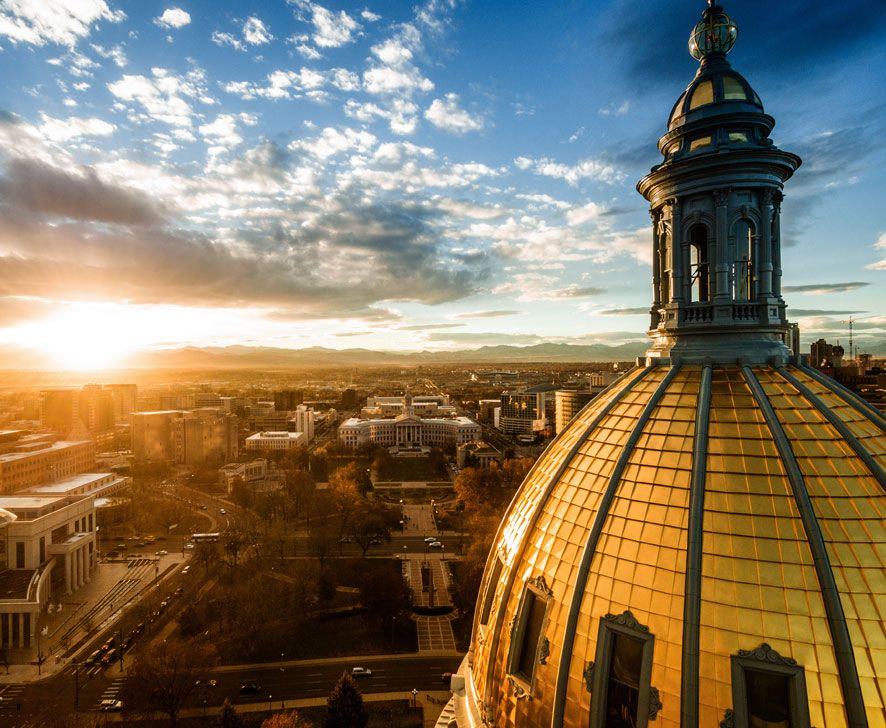Liquor stores join forces in advocacy group

DENVER — A consortium of independent liquor retailers in Colorado, many of whose sales have been hurt by legislation and passage of a ballot issue that allowed grocers and other convenience stores to sell beer and wine, has been formed to stand up for the stores’ interests before the Legislature and state officials.
Colorado Independent Liquor Stores United is the result of a merger of the Colorado Licensed Beverage Association and Coloradans for Safety.
The store owners cite job losses and store closures, as well as an increase in alcohol-related deaths that the group attributes at least partially to “Colorado steadily expanding access to alcohol in places where children routinely shop.”
SPONSORED CONTENT
Business Cares: May 2024
As Mental Health Awareness Month unfolds in Colorado, it serves as a reminder of the collective responsibility to prioritize mental well-being.
“This new organization represents a united front with one voice for all Colorado liquor stores,” said Mat Dinsmore, the group’s board president and owner of Wilbur’s Total Beverage in Fort Collins and Wyatt’s Wet Goods in Longmont. “The environment of expanding access to alcohol and reducing safeguards is unsustainable and is bad for Colorado businesses and public safety. This organization will continue to advocate and fight for our locally owned stores, for jobs and families, and consumer safety. Colorado Independent Liquor Stores United will be a forceful new voice on alcohol-related policy and issues.”
Until the last decade, Colorado limited grocers to selling beer that contained no more than 3.2% alcohol by weight. That made shopping centers that included a supermarket a prime location for a nearby liquor store, and “mom-and-pop” alcoholic-beverage retailers thrived near almost every one of the state’s large chain grocery stores.
The Colorado Retail Council and the Colorado Consumer Choice Coalition, which organized a “Colorado Consumers for Choice” campaign, argued that Colorado should join 45 other states that allow grocery stores to sell full-strength alcohol.
In 2016, Gov. John Hickenlooper signed Senate Bill 16-197, striking down a Prohibition-era law and allowing grocers, gas-station convenience stores and drugstores to sell full-strength beer beginning Jan. 1, 2019. Senate Bill 18-243 expanded the allowances two years later. The legislation was nominally popular in a state such as Colorado, with its large numbers of tourists and transplants who moved here from states where grocers could sell full-strength beer, wine and spirits, and it paved the way for voters’ narrow approval of Proposition 125 in 2022 to allow wine to be sold by the food retailers as well, beginning March 1, 2023.
Chris Fine, who had been executive director of the Colorado Licensed Beverage Association, said his group estimates that one in every four — or maybe even one in every three — of Colorado’s approximately 1,600 independent liquor stores could close as a result of the legislation and ballot issue. That would mean 400 to 600 shuttered retailers.
“The drop in sales doesn’t just affect us,” Dinsmore said. “It affects our nonprofit friends, our ability to give back to the community, the HVAC companies we use, the floor-cleaning companies we use.”
Dinsmore told BizWest last month that wholesalers he talks to have told him that “between 90 and 130 stores have closed across the state so far.”
The new consortium, working on behalf of the more than 1,500 stores across the state, is the only statewide association representing and advocating on behalf of independent, family-owned local liquor stores before the Liquor Enforcement Division, Colorado General Assembly, office of the governor, secretary of state and state treasurer.
“We really started talking about this organization last fall, but things started rolling in January,” Dinsmore said. Citing the rising number of alcohol-related casualties, he added that some state lawmakers “are frustrated with the way things are going as well.
“All through my career, we’ve told people, ‘This isn’t milk and eggs. There are real repercussions to an oversaturation of the market,’” Dinsmore said. “At independent Colorado liquor stores, the one thing we do, and we do it with pride, is to keep children out of our stores and to help with the problem, not add to it.”
According to a news release, one of the priorities for Colorado Independent Liquor Stores United will be to advocate for and protect small, independent businesses by supporting legislation in the upcoming session.
“Colorado Independent Liquor Stores United believes that the responsible sale of alcohol as a controlled substance is critical to public safety and consumer protection — the laws and regulations in place to support this industry have served Coloradans effectively for more than 80 years,” the group’s news release said. “However, billion-dollar out-of-state corporations and hedge/investment fund-owned companies have recently moved Colorado away from this solid foundation – effectively buying a change of law for their own profit, at the expense of public safety and Colorado’s family-owned local businesses.”
DENVER — A consortium of independent liquor retailers in Colorado, many of whose sales have been hurt by legislation and passage of a ballot issue that allowed grocers and other convenience stores to sell beer and wine, has been formed to stand up for the stores’ interests before the Legislature and state officials.
THIS ARTICLE IS FOR SUBSCRIBERS ONLY
Continue reading for less than $3 per week!
Get a month of award-winning local business news, trends and insights
Access award-winning content today!


